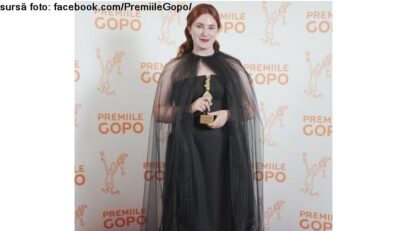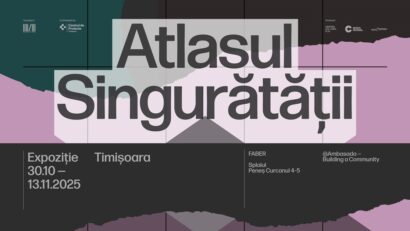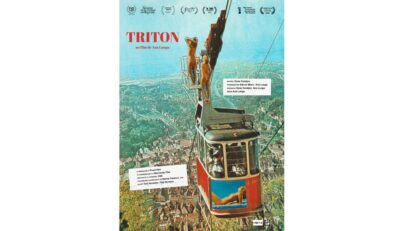Classical Theatre in Romania
For 21 years the western Romanian city of Arad has been the traditional venue for the International Classical Theatre Festival, the only such festival in Romania.

Luana Pleşea, 12.12.2015, 16:45
Organised by the “Ioan Slavici” Classical Theatre, the festival unfolded under the apparently paradoxical motto “a creation is classical when it is modern”, which was suggested by a prominent member of the selection committee, Maria Zarnescu. As a growing number of theatre goers and budding writers in particular are taking a keen interest in contemporary texts, we have asked both the festival’s organisers and participants about the place of classical theatre in the Romanian artistic life.
Constantin Cojocaru: “Classical theatre, at a time when new formulas are significantly gaining ground, is the only way to strike a highly important balance in the theatrical world, so that it should not be completely invaded by social and political issues. I remember there was a time when the actor was primarily a citizen, the social role was most important and the political aspect was defining. For instance, at least three out of five shows premiered at the Youth Theatre in Piatra Neamt had to be stage adaptations of Romanian plays, and, furthermore, two of these had to focus on political issues of topical interest. In spite of this, during those times, a genuine classical theatre show emerged, I don’t know how, all the more so as classical theatre texts have no colour, do not include social and political elements, but humaneness. And it is precisely humaneness that always remains valid. So, that is why classical theatre is so important, as it artistically defines and recomposes on stage the human being, at painful or comical times.”
That was the opinion of the well-known Romanian actor Constantin Cojocaru, aged 70, who brought to the Arad-based festival Ibsen’s “Wild Duck”, staged by Peter Kerek at the “Bulandra” Theatre in Bucharest, this autumn.
Liviu Pintileasa, 38, is an actor of the “Maria Filotti” Theatre in Brăila who came to the Classical Theatre Festival in Arad, with the show “Platonov”. Well known for his roles in feature films as well as in independent theatre shows, Liviu Pintileasa, just like his older colleague, has words of praise for classical texts and theatre.
Liviu Pintileasa: “I think there were times when contemporary texts were in fashion, but my impression is that for a couple of years now, people have taken a growing interest in classical texts. Proof of this is the fact that, even in independent theatres, where people are generally looking for contemporary texts, we can speak of a return to classical texts. I myself am a good example, because I am the employee of a theatre in Braila, where a classical play has just been staged, and I also work for the independent theatre ‘Unteatru’ in Bucharest, where most texts adapted for stage are classical, and to our joy, there are many spectators who love and come to see classical theatre”.
The general opinion is that, at least in Romania, budding directors prefer to stage contemporary texts, whereas prominent directors have a penchant for classical texts. Alexandru Mazgareanu falls into the category of young creators, but shows based on classical texts and stage adaptations of contemporary plays are on an equal par in his case. At the Arad festival, Alexandru Mazgareanu was invited to present the show “The Impostures of Scapin” by Moliere staged at the Youth Theatre in Piatra Neamt.
Alexandru Mazgareanu: “I have tried to tell the story of some young people who want to love, who fall in love, who fight for their love and who do not want to obey rules. It is a show about young rebels. This is the starting point of the show. I couldn’t say that I have a special appetite for classical drama. I am drawn to texts with important themes, great, major themes. Maybe this could be a reason why I would sometimes tend to approach classical texts. “
Given that some artists love classical plays and that a large part of the public prefers the great texts, the Arad International Classical Theatre Festival reached this autumn its 21st edition.
Bogdan Costea, the director of the Ioan Slavici Theatre, the organizer of the festival, is more reticent when it comes to the future of classical theatre: “I can honestly say that nowadays it is rather hard to make a selection based on classical drama. I don’t think that the classical theatre festival, the classical text will disappear forever, but it will go through a stage when things will get more sensitive. I think young directors will find it harder and harder to show their talent and directorial conception on a classical text.”
Critic Maria Zarnescu, the selector of this year’s festival in Arad, believes that, on the contrary, classical drama is still much sought after: “What I find really thrilling is that young directors and not only, realize that new translations are needed, especially of the French classical works. They also feel the need to combine arts for a spectacular effect. Of course, I do not mean that every show should become a musical, but this combination and an arts syncretism is needed more than ever before, because unlike in the 17th and 18th centuries, audiences need more than text, they need other triggers. I don’t believe that classical texts will ever become sapless as long as today’s artists know how to make them modern”.






























